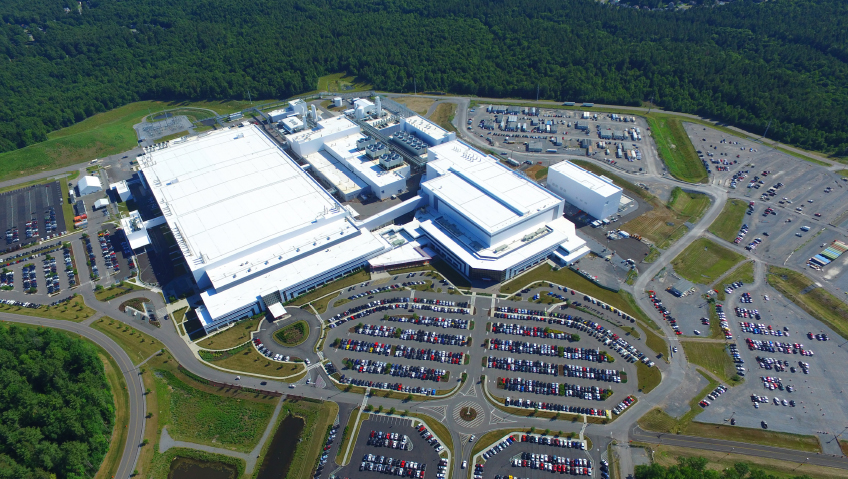Surrounded by nature and recreational activities, built on a rich history, and overflowing with a wealth of business opportunities, Cayuga County has it all.
Nestled between Rochester to the west and Syracuse to the east, the county stretches north to the shores of Lake Ontario, and touches or encompasses a total of eight lakes. “We boast more miles of freshwater waterfront than any of the 62 counties in New York State,” says Cayuga Economic Development Agency (CEDA) Economic Development Specialist, Maureen Riester. “Having the most miles of freshwater waterfront, we enjoy a wonderful quality of life with beautiful scenery and plenty of outdoor recreation.”
The abundance of land and water makes the Central New York county ideal for agriculture as well as outdoor recreation. “In addition to water, we have very fertile land and a strong and innovative agricultural industry,” Riester says. With 842 active farms, 43 percent of the county’s land is used for agricultural purposes, making it a state leader in several agriculture sectors. “For New York State, Cayuga County is number two in cows and milk and number one in soybeans. Agriculture is one of our primary industries.”
The county’s agricultural sector also sets itself apart for its sustainability. “We have very innovative farmers who are passionate and proud of their work,” says Riester. “They are wonderful stewards of the land and take important steps to be as sustainable as possible.”
For instance, “many of our dairy farms have digesters to turn cow manure into renewable natural gas,” she says. “A few farms are even starting to pipe renewable natural gas directly into the gas pipeline for residential and commercial use.”
Many Cayuga County farmers are committed to producing non-GMO crops. “A lot of our milk that’s produced here is non-GMO, which means that even the feed that the animals eat has to be non-GMO as well,” Riester explains. “So a lot of our crop farmers are growing non-GMO corn and soybeans and we also have a soybean processing facility that separates the soy oil from the soy meal. They do that through a mechanical extrusion process, which is a much more responsible way than how it’s done in other areas.”
Agritourism is one natural result of Cayuga County’s booming agricultural sector. “The large bodies of water create a microclimate, which makes the shorelines of our lakes ideal for growing grapes,” Riester says. “Therefore, we have a very large wine industry, which is promoted by the Cayuga Lake Wine Trail events. We even have a Sweet Treat Trail that brings together agricultural partners, family-owned businesses, and visitors to the Finger Lakes.”
In addition to its wineries, the county is becoming known for its craft breweries, distilleries, and now meaderies. “Some of these breweries have won national awards and have really put their names on the map,” she says. From locally-sourced craft beverages to farm-to-table gourmet foods, tourists can enjoy it all in Cayuga County. Tourists also enjoy visiting the Ward W. O’Hara Agricultural & Country Living Museum, which is next door to The REV Theatre Co. and Emerson Park’s disc golf course, public beach, and dog park.
Cayuga’s history is another big draw. The community’s historical residents include a string of well-known names. “The most notable person who chose Auburn as her hometown is Harriet Tubman,” Riester says. “She was a conductor on the underground railroad, a civil war hero, a philanthropist, a suffragist, and an entrepreneur. Harriet Tubman chose to put down roots in Auburn and she is buried here in Fort Hill Cemetery, along with her friend, William H. Seward.”
One of the foremost politicians of the nineteenth century, William H. Seward, served as a New York State Senator, Governor of New York, a U.S. Senator, and as Secretary of State in the Lincoln and Johnson administrations. Tourists can learn more about his impact on American history at the Seward House Museum in Auburn.
President Millard Fillmore and Emily Howland, an activist for equal education and women’s rights, also called Cayuga County home.
Another historical claim to fame is the Willard Memorial Chapel, which showcases stunning interior design by Louis Comfort Tiffany, including opalescent windows, Moresque-styled chandeliers, and glass mosaics. It is the only complete and unaltered Tiffany chapel known to exist anywhere in the world.
The area is making modern moves as well. Last year, Micron announced plans to build the biggest semiconductor fabrication facility in the nation, which will represent the largest private investment in the state’s history. Located in neighboring Onondaga County, this megafab will be located just 45 minutes from Auburn, Cayuga County’s most populated city. Investment plans span 20 years and include a whopping $100 billion, with Phase 1 seeing an investment of $20 billion within this decade. The groundbreaking investment is expected to create almost 50,000 jobs and to reverse the regional population decline.
Cayuga County is located in an opportune spot to benefit from this historic investment and the related investments that are sure to follow. “We’re in this triangle of higher education between Rochester, Syracuse, and Ithaca [with the] very prominent schools of Cornell University, RIT [Rochester Institute of Technology], Rochester University, and Syracuse University,” Riester says. “We can provide a high quality of life to attract talent for the companies that will locate in close proximity to Micron’s historic development.”
With fortunate foresight, the county has made great strides to breathe new life into its city centers. In 2018, Auburn won a $10 million grant for downtown projects. The village of Moravia was awarded a $2.25 million NY Forward grant in March 2023 to support its downtown revitalization. Now, the villages of Cayuga, Union Springs, and Aurora have followed suit, joining forces to revitalize their own historic downtowns by applying as a group for the Downtown Revitalization Initiative (DRI), and individually for the NY Forward grants, which support a variety of building improvements and business investments.
Former manufacturing facilities are also hoping for a revamp. The City of Auburn recently won an $8.5 million grant from the Restore NY Communities Initiative to restore the former Bombardier facility, now owned by Alstom. Shut down since 2006, the new funding will incentivize a new owner to redevelop the site for its next use.
Cayuga Milk Ingredients (CMI) is a farmer-owned business that processes milk from local dairy farms. “These entrepreneurial dairy farmers have pooled together and built their own milk processing plant,” Riester shares. “They process their own milk into a value-add product of milk powder, which is exported globally.” CMI recently announced plans for a significant expansion to its dairy processing facility in Auburn, $170 million investment that will create 100 new full-time jobs within the county.
The first milk-processing plant drew a related business to locate right next door. Denkavit operates an adjacent plant, utilizing milk by-products from CMI to produce young animal nutrition. Additional business opportunities remain for related industries. “After you’ve taken all of these components out of the milk, you’re essentially left with water,” Riester says. “So it would be great to attract a company that could further purify the water to a level that could be used for something else, furthering the synergies that already exist in the industrial park.”
Certainly, the future looks bright as incoming businesses provide new opportunities and entice more companies to follow suit. With plenty of available land, an educated workforce, and robust revitalization efforts underway, Cayuga County is more than ready to welcome newcomers looking to take advantage of all the region has to offer.






